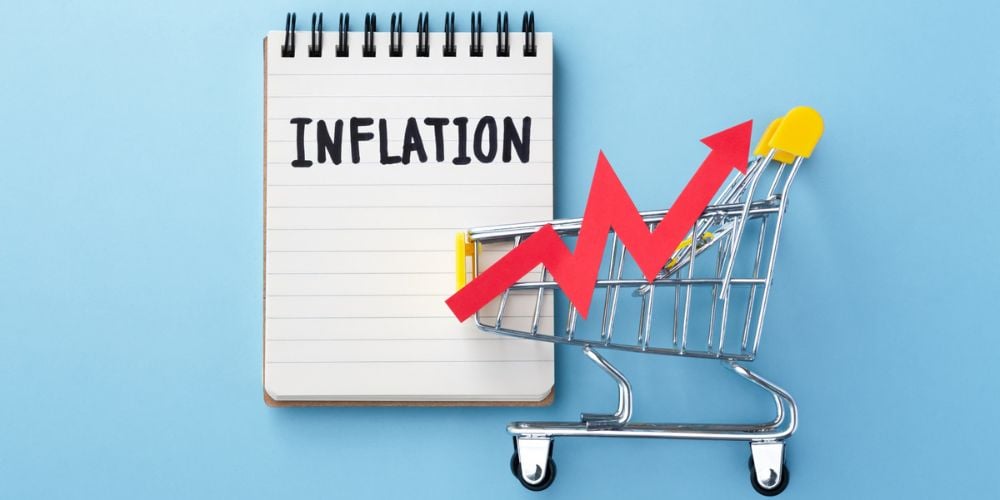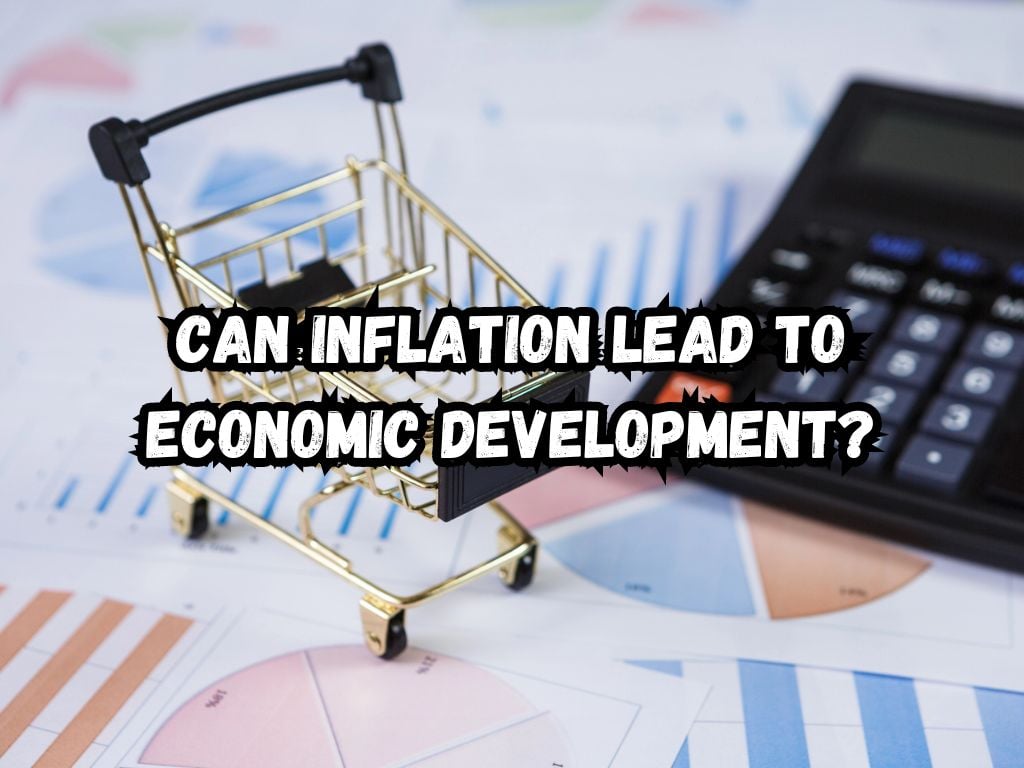In the realm of economics, inflation is often viewed with caution, given its complex relationship with the overall health of an economy.
This article seeks to unravel this intricate relationship, offering insights into how inflation can both benefit and challenge the growth and prosperity of economies. Let’s learn can inflation lead to economic development?
What is Inflation?
At its core, inflation marks an increase in prices over time, rendering the purchasing power of currency lower. While the thought of rising prices may initially seem alarming, inflation in moderation is a sign of a growing economy.
It indicates that consumers are buying, businesses are selling, and overall, the economic wheels are turning.
However, the rate at which prices rise and the underlying causes of inflation are critical in determining its impact on economic development.

Unpacking Economic Development
Economic development goes beyond mere economic growth. It encompasses improvements in living standards, reductions in poverty, and enhancements in health and education.
For a country to develop economically, it must experience sustained economic growth that is inclusive and benefits a broad segment of its population.
Can Inflation Lead To Economic Development?
The Stimulating Side of Inflation
Moderate inflation is often a sign of a healthy, developing economy. It can stimulate economic activity in several ways.
First, as prices rise, so do profits, encouraging businesses to expand. Second, inflation can reduce the real burden of debt, making it cheaper for businesses and governments to borrow and invest in long-term projects.
This debt dynamic can lead to infrastructure developments, educational improvements, and health care advances, contributing to overall economic development.
The Cautionary Tale of High Inflation
However, when inflation spirals out of control, it becomes a villain in the economic story. High inflation introduces uncertainty into the economy.
Businesses hesitate to make long-term investments, and consumers may curb their spending, fearing future price rises.
Hyperinflation, a severe form of high inflation, can cripple an economy, wiping out savings, discouraging investment, and ultimately stalling economic development.
Striking the Right Balance: The Role of Monetary Policy
Central banks around the world play a pivotal role in managing inflation through monetary policy.
By adjusting interest rates and conducting open market operations, these institutions strive to keep inflation at a level that supports economic growth without letting it escalate to the point of creating instability and uncertainty.
Historical Perspectives and Modern Implications
History provides numerous examples of economies that thrived with moderate inflation and those that suffered under the weight of hyperinflation.
The challenge for today’s policymakers is to learn from these lessons, applying monetary tools effectively to foster an environment where economic development can flourish against the backdrop of stable inflation.

Moving Forward with Prudence
Policymakers must actively monitor economic indicators and adjust monetary policies to effectively support sustainable economic growth.
This goes beyond merely controlling inflation. It requires implementing strategic policies that foster innovation, bolster education, and enhance infrastructure.
These comprehensive measures are crucial to build a resilient economy that can adapt to changes and challenges, promoting an inclusive and progressive environment that benefits all sectors of society.
FAQs
What is inflation?
Inflation is the rate at which the general level of prices for goods and services is rising, thereby eroding purchasing power.
How does inflation affect economic development?
Moderate inflation signals healthy economic activity, encouraging spending and investment, which promote development. High inflation, however, can hinder economic progress by creating uncertainty and reducing spending power.
Can inflation be beneficial?
Yes, when moderate, it can stimulate economic growth by encouraging production and investment, as businesses anticipate higher future prices.
Why is controlling inflation important?
Controlling inflation is crucial for maintaining a stable economy. It ensures that economic growth is sustainable and does not lead to excessive price increases that could harm living standards.
What role do central banks play in managing inflation?
Central banks manage inflation through monetary policy, adjusting interest rates and engaging in open market operations to maintain price stability and support economic development.
Conclusion
Inflation and economic development share a complex but navigable relationship. While inflation in controlled doses can act as a stimulant for economic growth, unchecked inflation can derail development achievements.
The key lies in maintaining a balance, ensuring that the wonder of rising prices translates into a higher quality of life for all citizens, rather than an economic hurdle to overcome.
In the landscape of economic policy, the story of inflation and its impact on development continues to evolve, reflecting the dynamic nature of global economies and the continuous quest for prosperity.


 Tags:
Tags:










